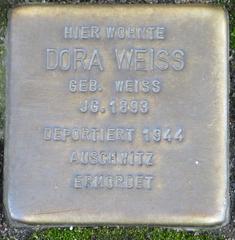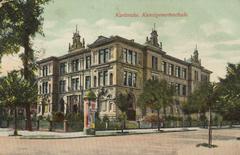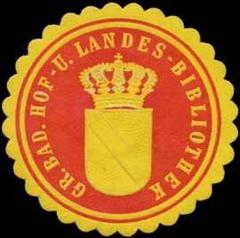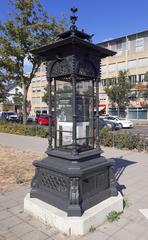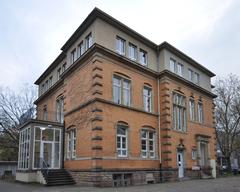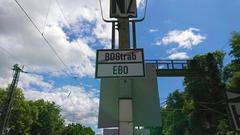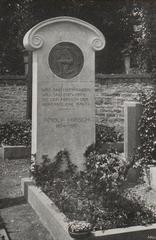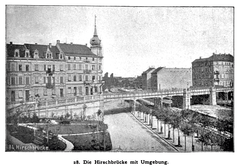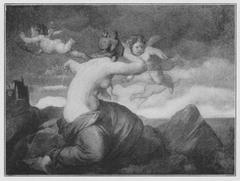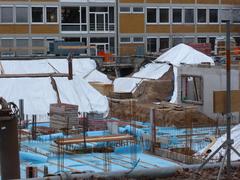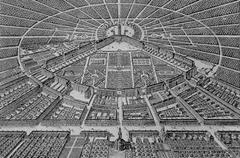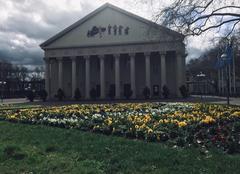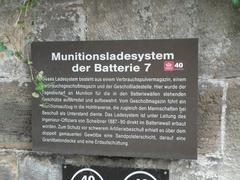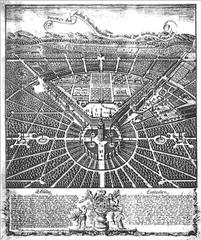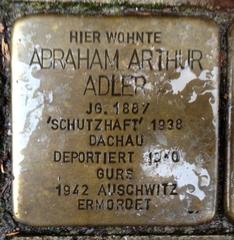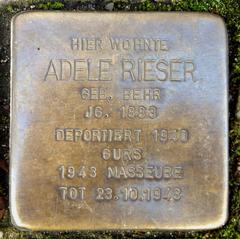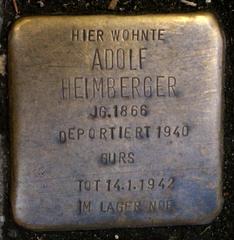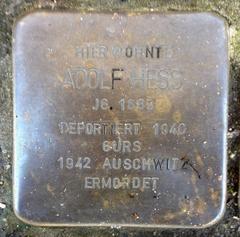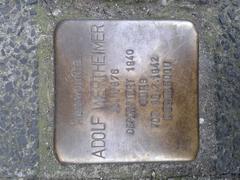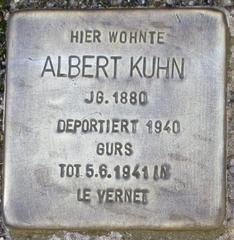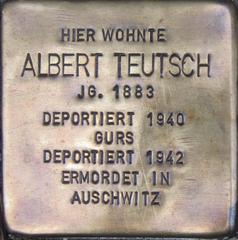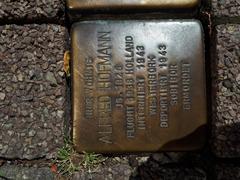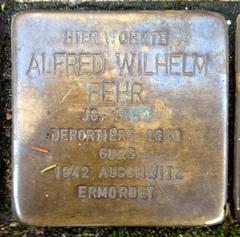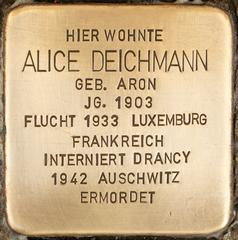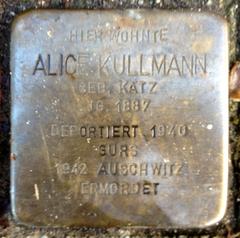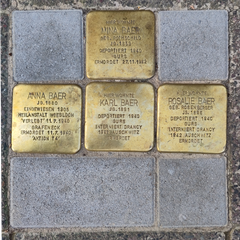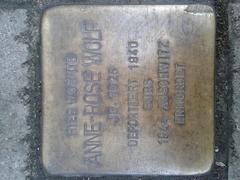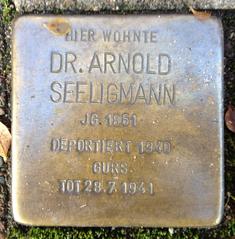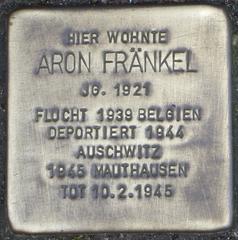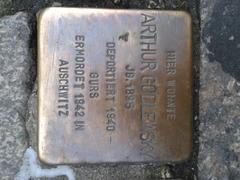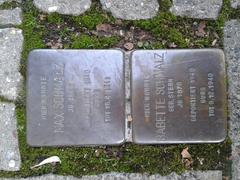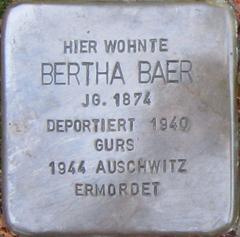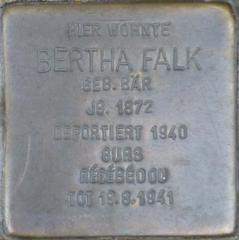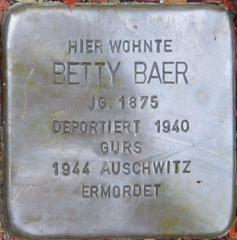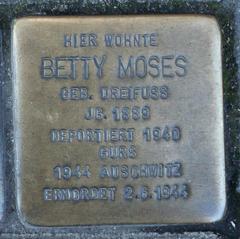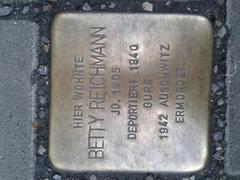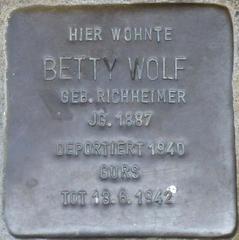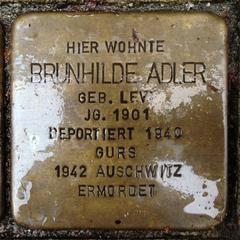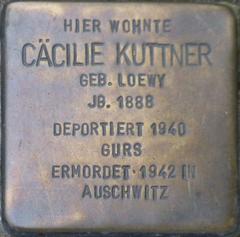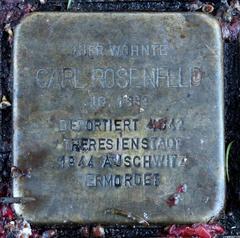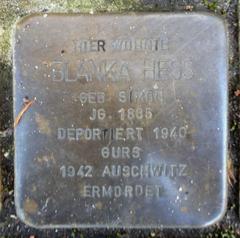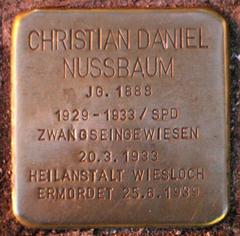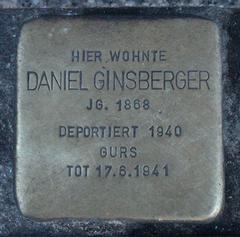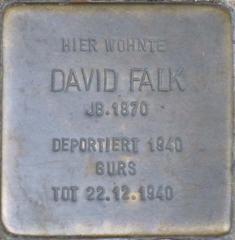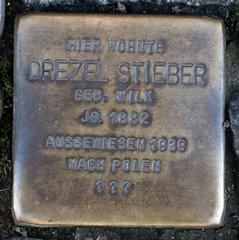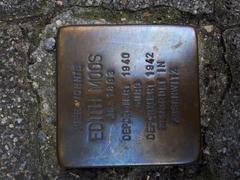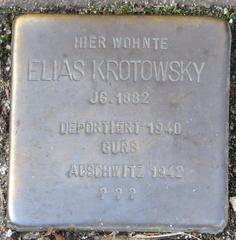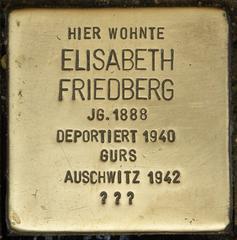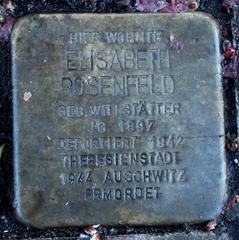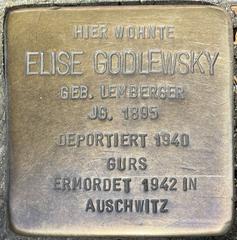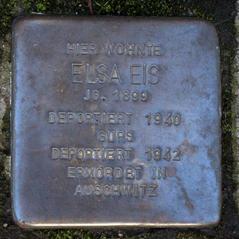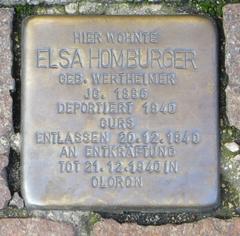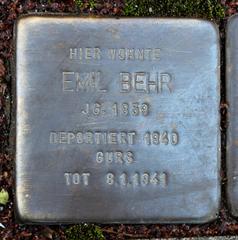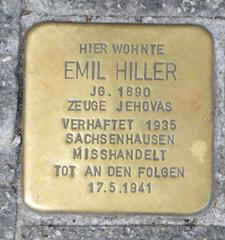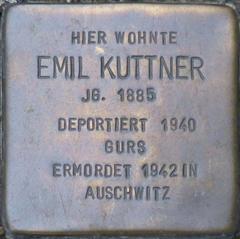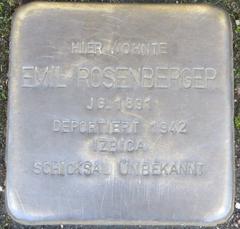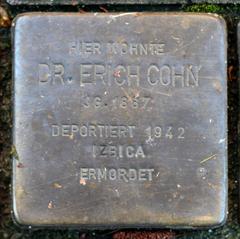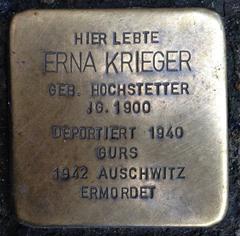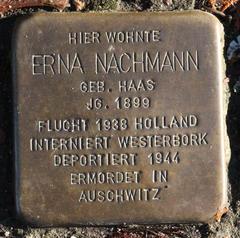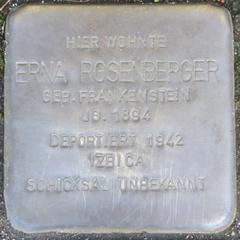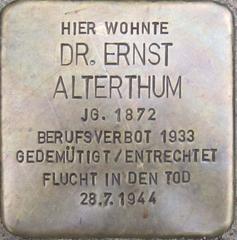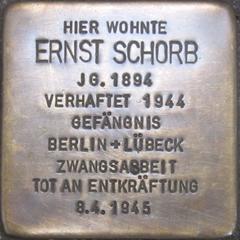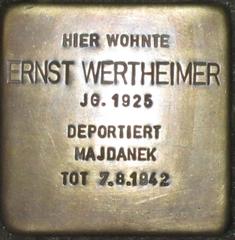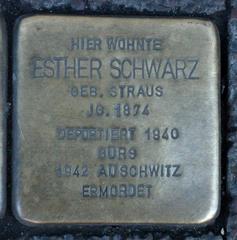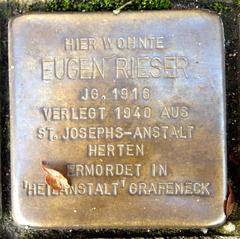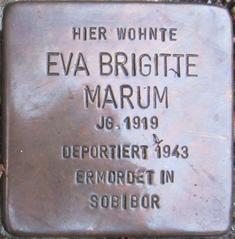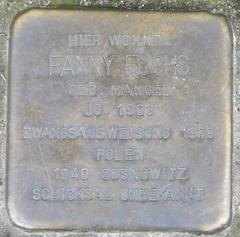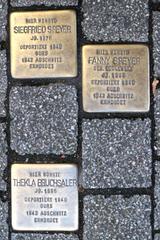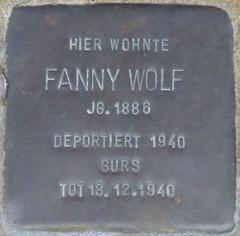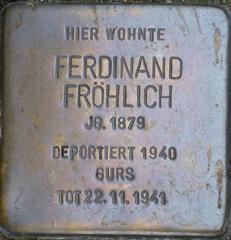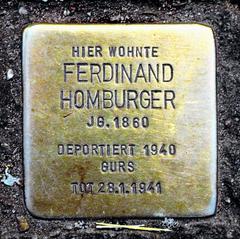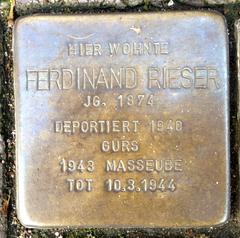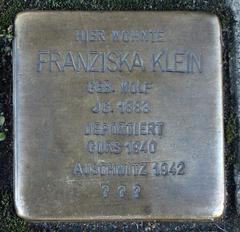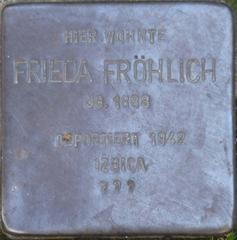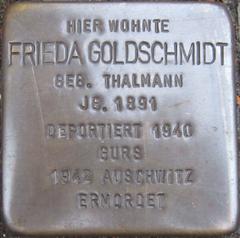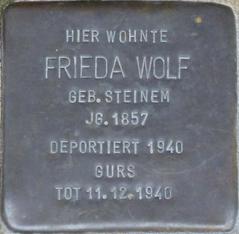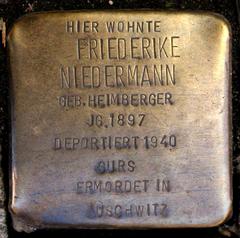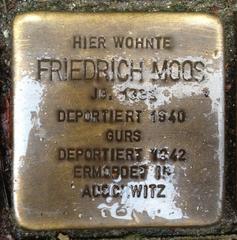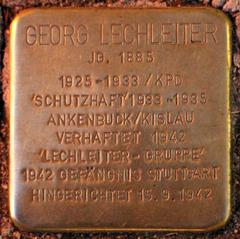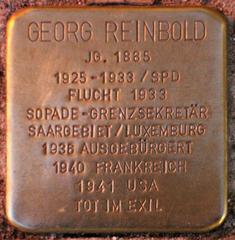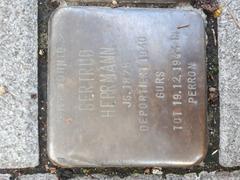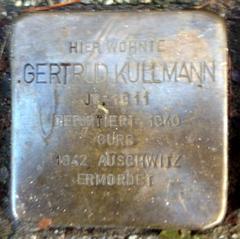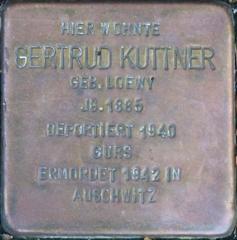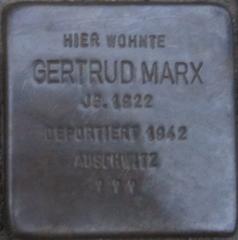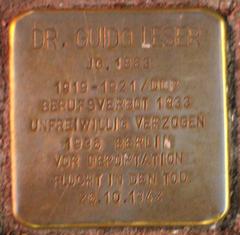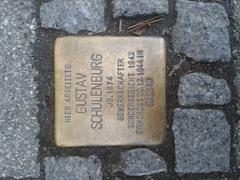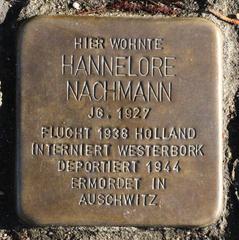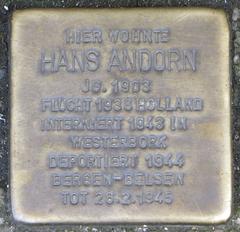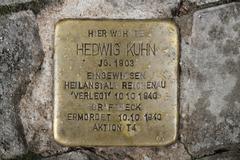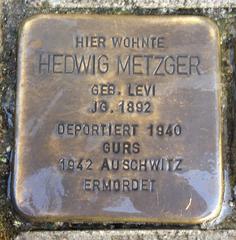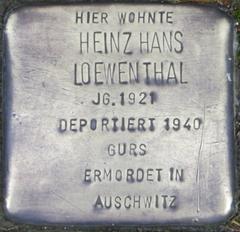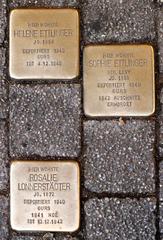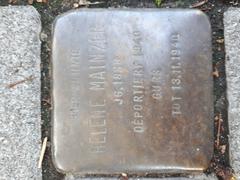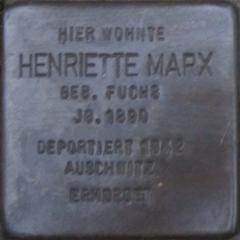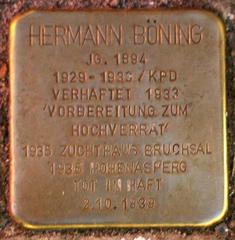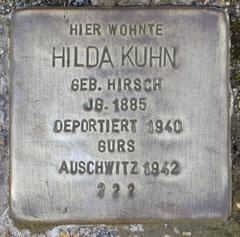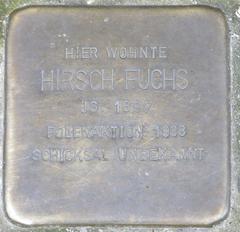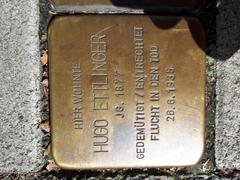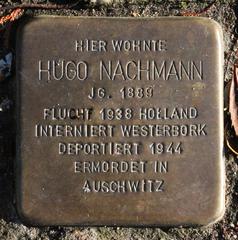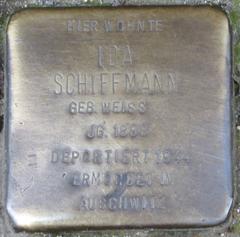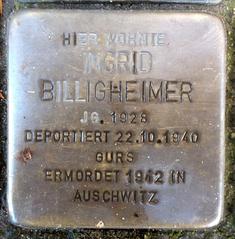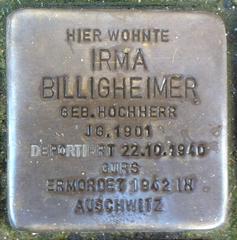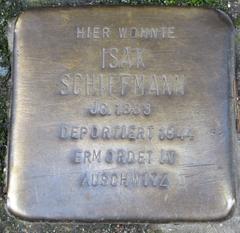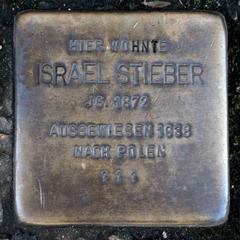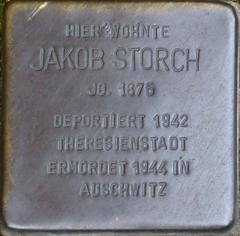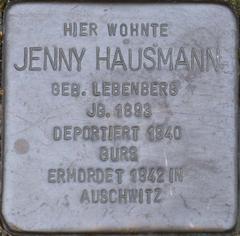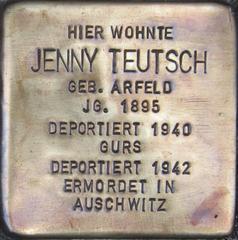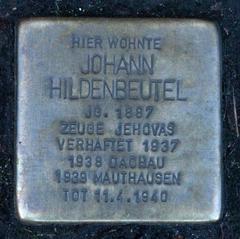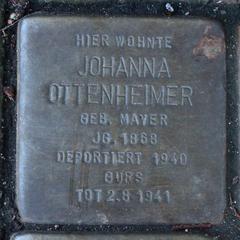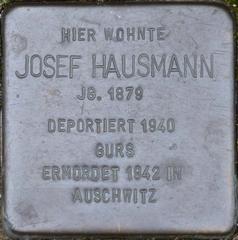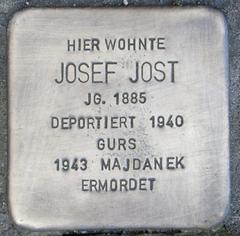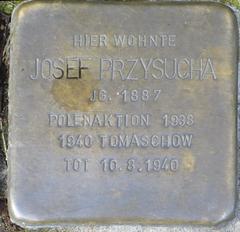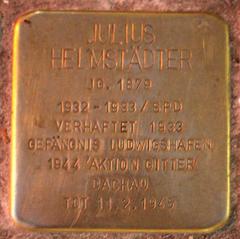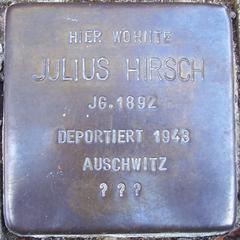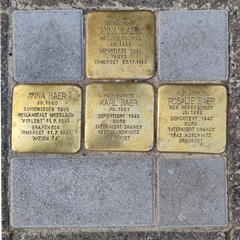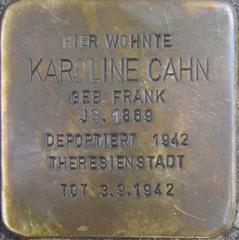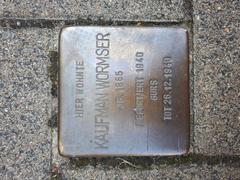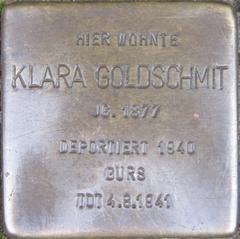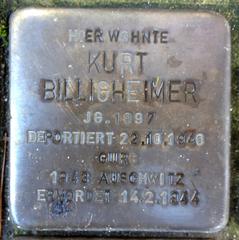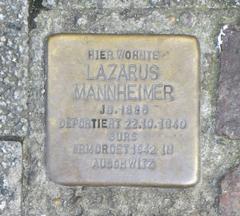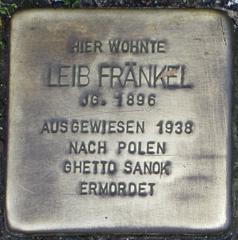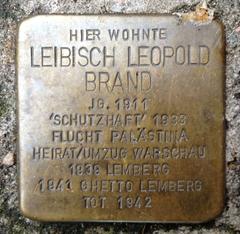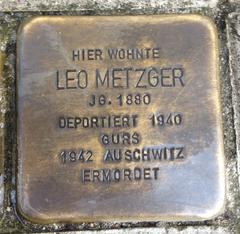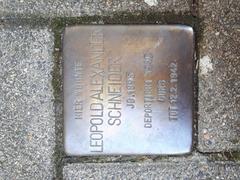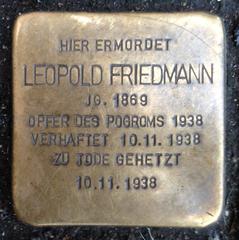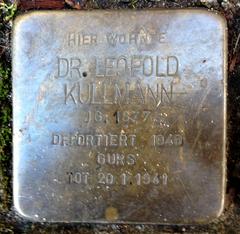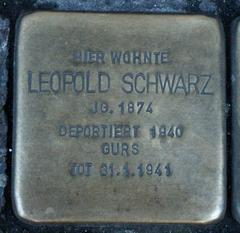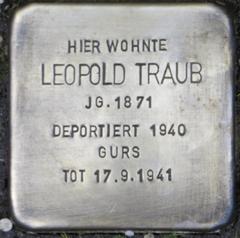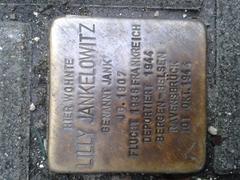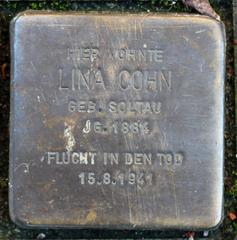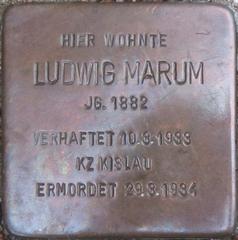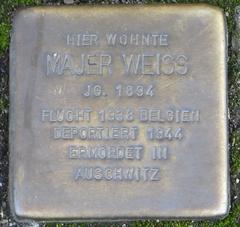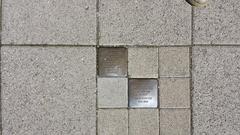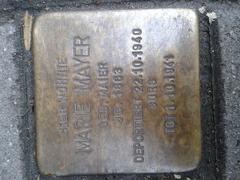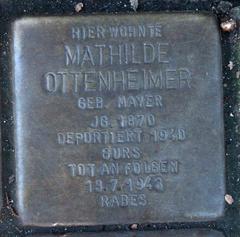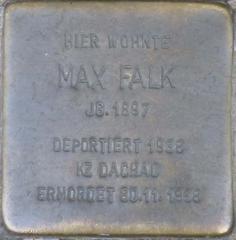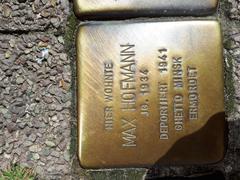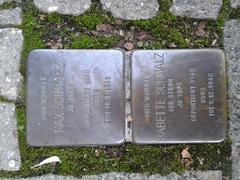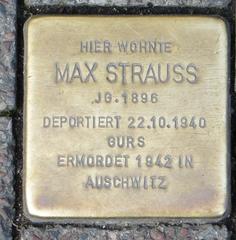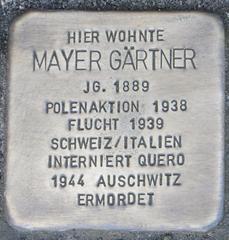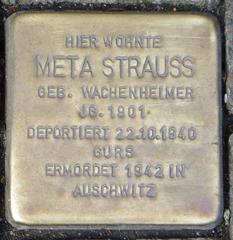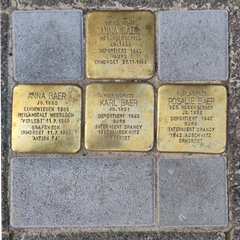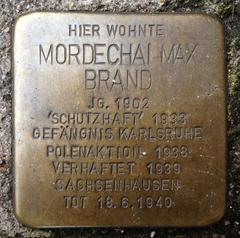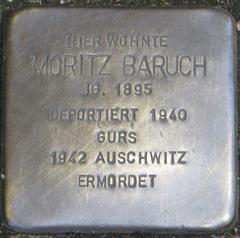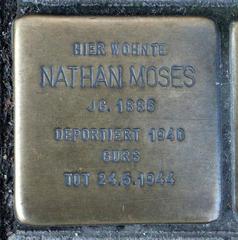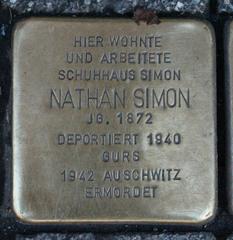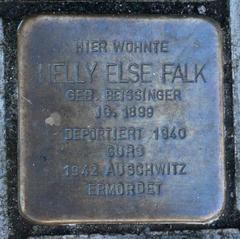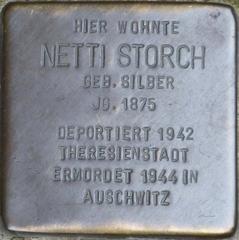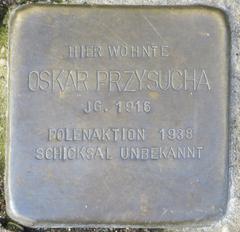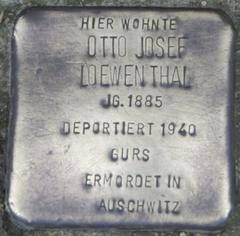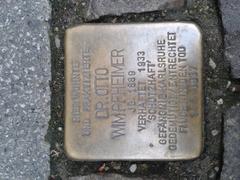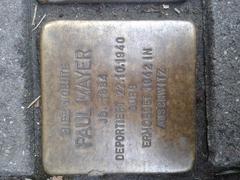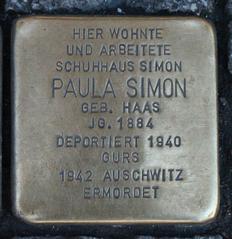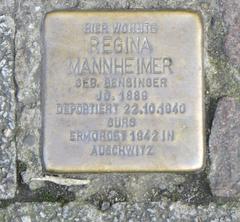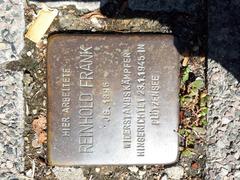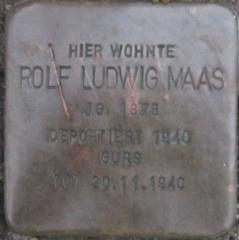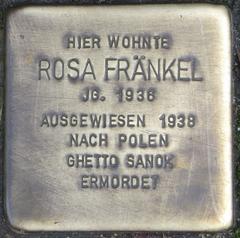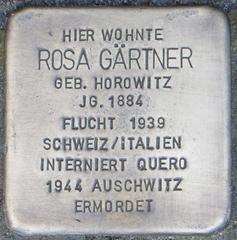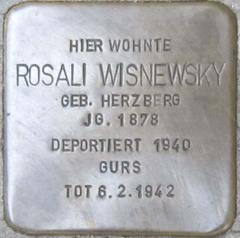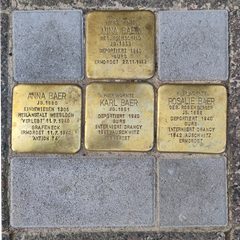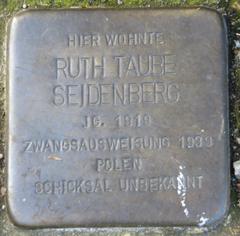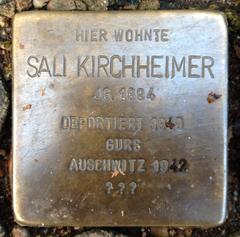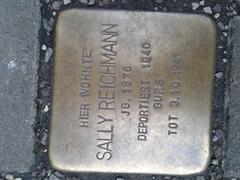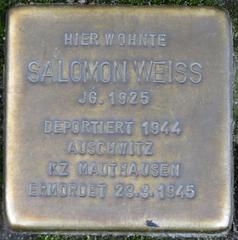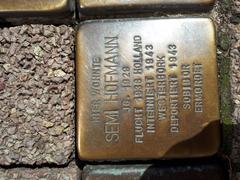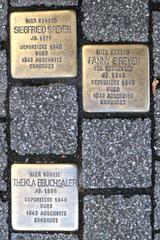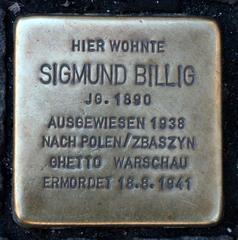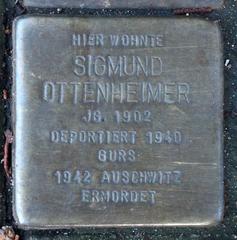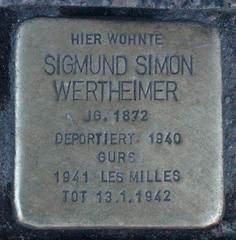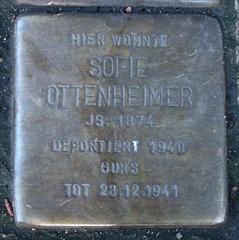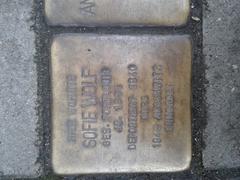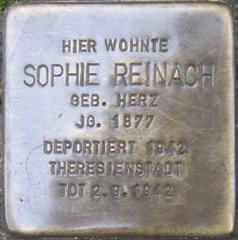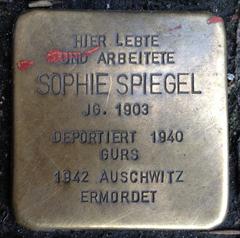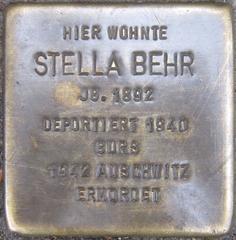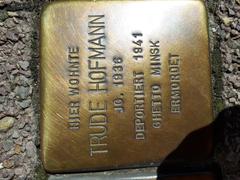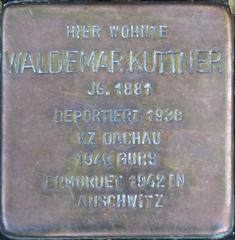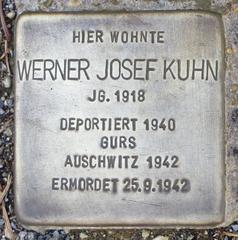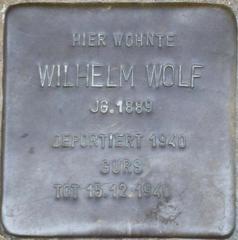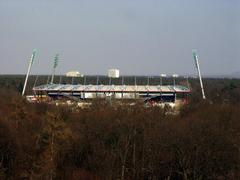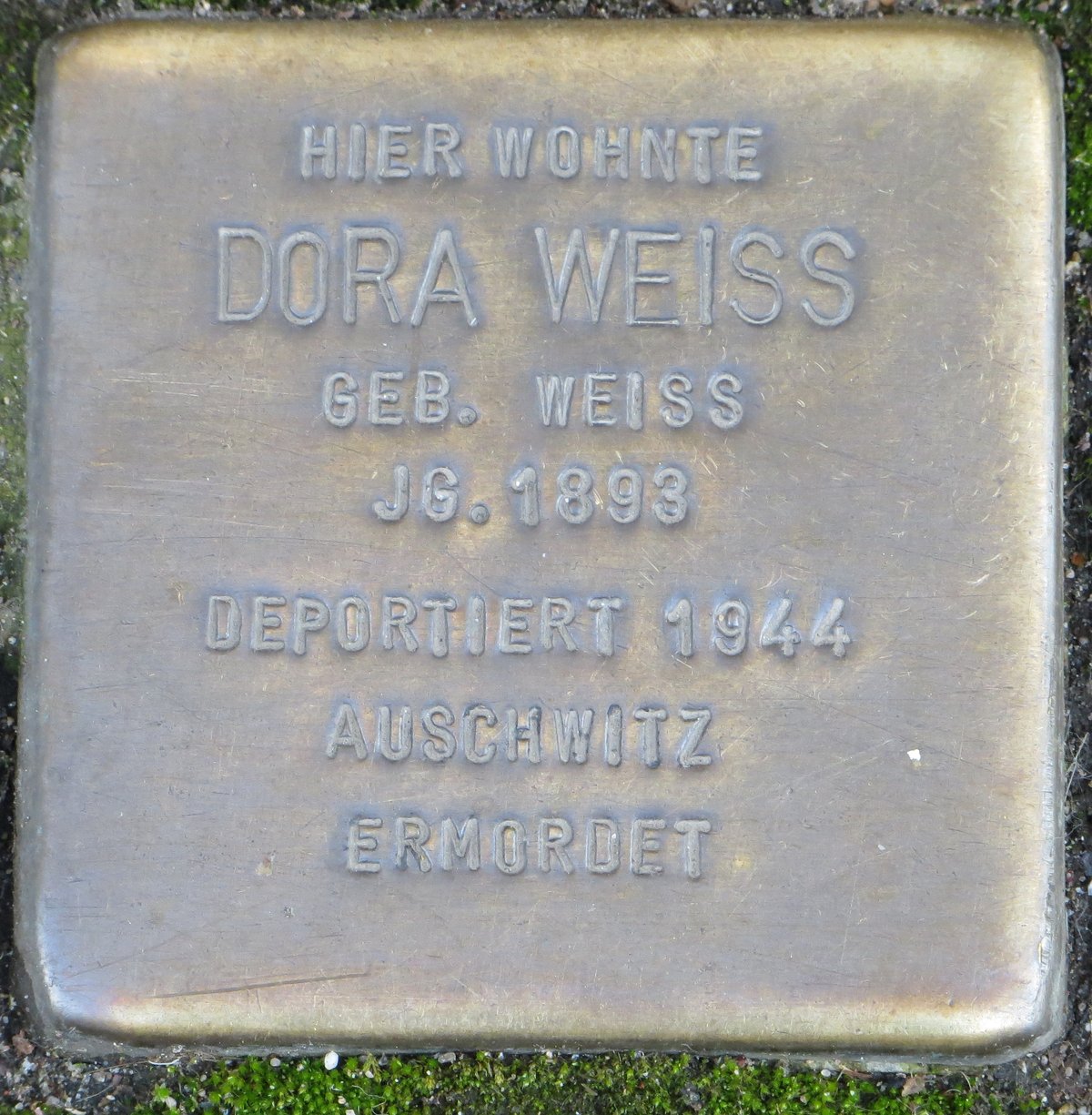
Visiting the Stolperstein Dedicated to Dora Weiss in Karlsruhe, Germany: Tickets, Hours, and Tips
Date: 14/06/2025
Introduction to the Stolperstein Dedicated to Dora Weiss in Karlsruhe
The Stolperstein dedicated to Dora Weiss in Karlsruhe, Germany, presents a unique opportunity for visitors to personally engage with the memory of Holocaust victims. Stolpersteine, or “stumbling stones,” are small brass plaques embedded in sidewalks at the last freely chosen residences of those persecuted by the Nazi regime. Conceived in 1992 by artist Gunter Demnig, the Stolpersteine project has become the world’s largest decentralized memorial, with over 75,000 stones installed across Germany and 24 European countries as of 2023. These small memorials transform city streets into spaces of remembrance, ensuring the victims’ stories remain part of everyday life (Karlsruhe City; Stolpersteine Project Official Website).
The Stolperstein for Dora Weiss serves as a poignant tribute to a Jewish resident of Karlsruhe and member of the Weiss family, whose life was forever altered by Nazi persecution. Located in a public pedestrian area, the memorial is accessible at all times, free of charge, and is supported by guided tours and digital resources that provide deeper historical context (Stolpersteine Guide; Stadtwiki Karlsruhe).
Karlsruhe itself is home to a variety of sites related to Jewish heritage and Holocaust remembrance, including the Holocaust Memorial Karlsruhe, the restored Synagogue, and the City Museum. This guide provides comprehensive information for visiting the Dora Weiss Stolperstein, including directions, accessibility, visiting hours, respectful conduct, and suggestions for integrating the visit with other historical landmarks. Visitors are encouraged to engage thoughtfully, fostering remembrance and education for future generations (Karlsruhe Tourist Information; LBI News).
Contents Overview
- Introduction
- Origins and Development of the Stolpersteine Project
- Artistic and Memorial Concept
- Stolpersteine in Karlsruhe
- Visiting Stolpersteine in Karlsruhe: Practical Information
- Visiting Hours and Accessibility
- How to Find Stolpersteine in Karlsruhe
- Recommended Walking Tours
- Special Events and Ceremonies
- Digital Resources and Mobile Apps
- Controversies and Ongoing Debates
- Nearby Karlsruhe Historical Sites
- Holocaust Memorial Karlsruhe: Visitor Information and Historical Context
- Visiting the Dora Weiss Stolperstein in Karlsruhe
- Early Life and Family Background
- Persecution under the Nazi Regime
- About the Dora Weiss Stolperstein
- Visiting Information
- Cultural Significance and Educational Value
- FAQs
- Visiting the Dora Weiss Stolperstein: Hours, Location, and Visitor Tips
- Location and Directions
- Visiting Hours and Ticket Information
- Best Times and Weather
- Accessibility and Transportation
- Respectful Conduct and Etiquette
- Commemoration Activities
- Guided Tours and Resources
- Combining Your Visit
- Practical Tips
- Community Engagement
- Safety and Amenities
- Responsible Tourism
- Visual Resources
- Conclusion and Visitor Recommendations
- Sources and Further Reading
Origins and Development of the Stolpersteine Project
The Stolpersteine project was initiated by German artist Gunter Demnig in 1992 as a way to commemorate the fate of Sinti and Roma deported from Cologne. The first stones did not carry individual names but referenced deportation edicts. The project soon evolved to honor individuals, with brass plaques installed in front of the last freely chosen residences of victims of Nazi persecution (LBI News).
Today, more than 75,000 Stolpersteine are installed in 1,265 German municipalities and 24 European countries, making the project the world’s largest decentralized memorial. The stones’ decentralized nature brings remembrance into everyday spaces, making the memory of the Holocaust visible and tangible within local communities (Karlsruhe City).
Artistic and Memorial Concept
Each Stolperstein is a small concrete cube (about 9 x 9 x 9 cm) topped with a brass plate, engraved with the victim’s name, birth date, and key details of their persecution (Stolpersteine Berlin FAQ). Installed flush with the sidewalk in front of the victim’s last chosen address, the stones serve as both personal and communal memorials.
Stolpersteine commemorate various groups targeted by the Nazis, including Jewish families, Sinti and Roma, political opponents, religious dissenters, homosexuals, Jehovah’s Witnesses, victims of “euthanasia” programs, and others. The project seeks to honor entire families and communities, reinforcing the collective loss (Stolpersteine Berlin FAQ).
Stolpersteine in Karlsruhe
Karlsruhe features more than 300 Stolpersteine, installed in collaboration with local volunteers and organizations. These stones commemorate individuals and families, such as the Baer and Weiss families, tragically murdered in concentration camps or through Nazi persecution (Karlsruhe City). The Stolperstein for Dora Weiss is among these memorials, situated at her last freely chosen residence.
Visiting Stolpersteine in Karlsruhe: Practical Information
Visiting Hours and Accessibility
Stolpersteine are part of the public sidewalk and accessible 24/7, with no tickets or admission fees. The locations are generally wheelchair accessible, though some older pavements may be uneven.
How to Find Stolpersteine in Karlsruhe
Stolpersteine are distributed throughout the city, especially in areas of historical significance. Use the Stolpersteine Guide app or maps from the Tourist Information Center for navigation.
Recommended Walking Tours
Guided and self-guided walking tours are available, highlighting notable Stolpersteine and sharing the stories behind each stone. These tours can be booked through local organizations or via the Guide app.
Special Events and Ceremonies
Public ceremonies and cleaning events are held on key remembrance dates, such as International Holocaust Remembrance Day (January 27) and Kristallnacht (November 9). These gatherings often include readings and opportunities for community participation (BNN Karlsruhe).
Digital Resources and Mobile Apps
A comprehensive database of Stolpersteine across Europe is being developed, expected to be fully accessible by spring 2025 (Stolpersteine Database). The Stolpersteine Guide app offers free access to biographies and walking tour routes in Karlsruhe.
Controversies and Ongoing Debates
Despite broad support, the project has faced criticism for the placement of memorials in pavements where they may be stepped on, resulting in bans in certain cities, including Munich (LBI News). Nevertheless, the Stolpersteine continue to expand, supported by grassroots initiatives and descendants of victims.
Nearby Karlsruhe Historical Sites
- Karlsruhe Palace: Home to the State Museum, providing insights into regional history.
- Jewish Museum Karlsruhe: Focuses on Jewish cultural heritage.
- Holocaust Memorial Karlsruhe: Central site for reflection and commemoration.
- Synagogue Karlsruhe: Restored synagogue reflecting Jewish community history.
Holocaust Memorial Karlsruhe: Visitor Information and Historical Context
Overview
The Holocaust Memorial in Karlsruhe commemorates local victims and offers a reflective space for understanding the impact of the Holocaust on the community.
Visiting Hours
- Monday to Sunday: 9:00 AM – 6:00 PM
- Open on public holidays
Admission & Accessibility
- Free admission
- Wheelchair accessible; assistance available on request
Directions
- Address: Am Rondellplatz 1, 76133 Karlsruhe, Germany
- Public transport: Tram lines 2, 3, and 5 (Rondellplatz stop)
- Parking: Limited street parking, with nearby public garages
Tours & Events
- Weekly guided tours (Saturdays, 11:00 AM); advance booking recommended
- Annual commemorative events on Kristallnacht (November 9)
Visitor Tips
- Comfortable walking shoes recommended
- Audio guides available via the Audiala app
- Photography permitted for personal use
For more, see the Karlsruhe City Museum and Holocaust Memorial site.
Visiting the Dora Weiss Stolperstein in Karlsruhe
Early Life and Family Background
Dora Weiss was a Jewish resident of Karlsruhe, likely related to Majer and Salomon Weiss, whose Stolpersteine are nearby. The Weiss family was part of Karlsruhe’s longstanding Jewish community, which faced systematic persecution under the Nazis.
Persecution under the Nazi Regime
Following the 1933 Nazi rise to power, Jewish citizens endured escalating restrictions, loss of rights, Aryanization of property, and ultimately, deportation and murder. The Weiss family, like many others, suffered the tragic consequences of these policies.
About the Dora Weiss Stolperstein
The Stolperstein for Dora Weiss is embedded in the pavement at her last freely chosen residence, serving as a micro-memorial to her life and as part of the international Stolpersteine network (Denkmalprojekt Karlsruhe Stolpersteine).
Visiting Information
- Location: Near Dora Weiss’s last residence; consult Stadtwiki Karlsruhe or the Tourist Information Center for the exact address.
- Hours: Accessible 24/7, year-round.
- Admission: Free.
- Accessibility: Wheelchair accessible; some areas may have uneven pavement.
- Nearby Attractions: Other Stolpersteine, Synagogue memorial, City Museum.
- Guided Tours: Available via local organizations and the Guide app.
- Photography: Morning or late afternoon recommended for best lighting.
Cultural Significance and Educational Value
The Stolpersteine project personalizes Holocaust remembrance, encouraging reflection and dialogue. Visiting these stones fosters education and empathy, connecting individual stories to broader history.
FAQs
- Where is the Stolperstein? Consult online maps or the Tourist Info Center for directions.
- Is there an entrance fee? No, visits are free.
- Are tours available? Yes, through local organizations.
- Is it accessible? Generally yes, but some sidewalks may be uneven.
Visiting the Dora Weiss Stolperstein: Hours, Location, and Visitor Tips
Location and Directions
The Dora Weiss Stolperstein is among over 296 Stolpersteine in Karlsruhe (Stadtwiki Karlsruhe). Use the official list or ask at the Tourist Information Center, Kaiserstraße 72-74.
Visiting Hours and Ticket Information
Accessible at all times, with no tickets or fees required.
Best Times and Weather
Late spring and early autumn are ideal for visits, with moderate temperatures and less rain. Early mornings and late afternoons offer a quieter atmosphere.
Accessibility and Transportation
- Most Stolpersteine are on level, accessible sidewalks.
- Public transport: S-Bahn lines 1, 2, S1/S11, S8, S2, S4, S52 (Marktplatz stop).
- Parking: Schlossplatz garage, following “Karlsruhe-Nord/Zentrum Nord” signs.
Respectful Conduct and Etiquette
- Pause to read the inscription and reflect (Stolpersteine FAQ).
- Preferably avoid stepping directly on the stones (Folklife Magazine).
- Take photos discreetly; maintain a respectful, silent atmosphere.
Commemoration Activities
Join community cleaning and remembrance events, especially on January 27 and November 9. Announcements are made via local websites and the Tourist Information Center (BNN Karlsruhe).
Guided Tours and Resources
Book tours through the Tourist Information Center or use the Stolpersteine Guide app. Printed and digital resources are available in multiple languages.
Combining Your Visit
Enhance your experience by visiting nearby memorials, museums, and community centers related to Jewish heritage.
Practical Tips
- Bring a soft cloth to participate in cleaning traditions (Stolpersteine FAQ).
- Plan your route with maps or digital tools.
- Dress for the weather and bring an umbrella if needed.
- English guides are available.
Community Engagement
- Attend public ceremonies and cleaning events.
- Leave flowers, stones, or notes as tokens of remembrance.
- Consider supporting the project through donations or sponsorship (Stolpersteine FAQ).
Safety and Amenities
Karlsruhe is safe and well-served by amenities; public restrooms and multilingual assistance are available near Marktplatz and the Tourist Information Center.
Responsible Tourism
Visitors are encouraged to approach the Stolpersteine with humility and respect, honoring the memory of victims like Dora Weiss.
Visual Resources
- Photograph of the Dora Weiss Stolperstein (alt text: “Dora Weiss Stolperstein memorial plaque in Karlsruhe”)
- Map of the Stolperstein’s location
- Photos from guided tours or remembrance events
Conclusion and Visitor Recommendations
The Stolperstein dedicated to Dora Weiss is more than a memorial; it is a bridge between past and present, fostering empathy and understanding. With free, 24/7 access, a wealth of digital and local resources, and meaningful community traditions, a visit to this Stolperstein is both educational and deeply moving. To enrich your experience, consult official maps, consider a guided tour, participate in local events, and explore Karlsruhe’s broader network of Holocaust remembrance sites. By doing so, you help ensure that the stories and lessons of history remain alive for future generations (Karlsruhe City; Stolpersteine Project Official Website; Karlsruhe Tourist Information).
Sources and Further Reading
- Visiting Stolpersteine in Karlsruhe: History, Memorials, and Visitor Information, 2024, Karlsruhe City (https://m.karlsruhe.de/db/kunst/stolpersteine_der_familie_baer.html?kl=0)
- Visiting the Dora Weiss Stolperstein in Karlsruhe: History, Significance, and Visitor Information, 2024, Denkmalprojekt Karlsruhe (http://www.denkmalprojekt.org/2024/karlsruhe_stolpersteine_wk2_bw.html)
- Visiting the Dora Weiss Stolperstein in Karlsruhe: Hours, Location, and Visitor Tips, 2024, Stadtwiki Karlsruhe (https://ka.stadtwiki.net/Stolpersteine)
- Holocaust Memorial Karlsruhe Visiting Hours, Tickets, and Visitor Information, 2024, Karlsruhe City Museum (https://stadtgeschichte.karlsruhe.de)
- Stolpersteine Project Official Website, 2024 (https://www.stolpersteine.eu)
- Stolpersteine Guide App, 2024 (https://stolpersteine-guide.de/)
- Karlsruhe Tourist Information Center, 2024 (https://www.karlsruhe-erleben.de/attraktion/tourist-information-karlsruhe-0a3a2fee00)
- LBI News on Stolpersteine Commemoration and Controversy, 2024 (https://www.lbi.org/news/Stolpersteine-Commemoration-and-Controversy/)
- Folklife Magazine on Stumbling Stones Holocaust Memorials, 2024 (https://folklife.si.edu/magazine/stumbling-stones-holocaust-memorials)
